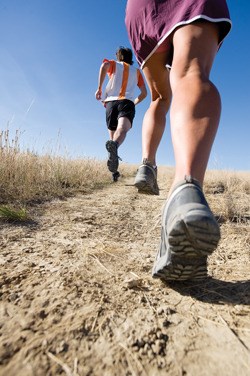If your feet could talk, what do you think they would say to you? Would they be angry at you all the time? Or maybe theyd occasionally say thanks?
Although our feet cant use words, they provide us with real signals to try and let us know what were doing right and wrong.
Ive always been very athletic and fit. But I have also always been very prone to ankle injuries. My soccer career was plagued by a series of twisted ankles.
I was fortunate to nourish my body properly for fast recovery and rarely had to miss many games.
But it wasnt until my studies to become a holistic nutritionist that I started to understand what my feet were trying to tell me.
Our bodies, especially our limbs and extremities, are lined with proprioceptors which are basically nerve receptors that relay information to our brain.
Proprioception helps us maintain balance, co-ordination and mechanical adaptability.
Heres an example: Youre walking barefoot and step on a sharp stone. What happens? Other than pain, you may notice muscles throughout your body firing to adapt to the unexpected discomfort. Your toes may curl, your knee may buckle, your arms may flail and your whole body may lean to one side or the other. All of this is in response to stimulus under your foot.
So, now consider what over-protective shoes are doing to us.
Initially, a hard-sole shoe sounds like a great idea. We would all love to be able to walk carelessly without the concern or stepping on something sharp. But now we are confining our proprioceptors and not allowing them to develop and strengthen their abilities.
In my particular case, I had become so accustomed to wearing so many different types of protective athletic shoes that my brain was unable to receive critical messages from my feet.
The proprioceptors became weak, just as an inactive muscle would become. The end result was that my ankles were trying to adapt to varying terrain all by themselves. They couldnt handle the workload alone, so they would just give out and I would find myself sitting on the bench with an ice pack.
I am not trying to say that all shoes are bad. On the contrary, some shoes may be absolutely necessary. However, when we put our feet into a thick-soled shoe, we end up forcing them into a more rigid position and prevent it from being able to adapt naturally to sports-induced stresses.
Statistics have shown that barefoot athletes have a lower rate of injury. The theory is that our feet are designed to absorb shock naturally and allow our body to compensate without harm. So if you find you tend to be getting more sports-related injuries for no apparent reason, try listening to your feet. Perhaps they are trying to tell you something.
Rich Ralph for FitnessGoop.ca is a registered holistic nutritionist.



